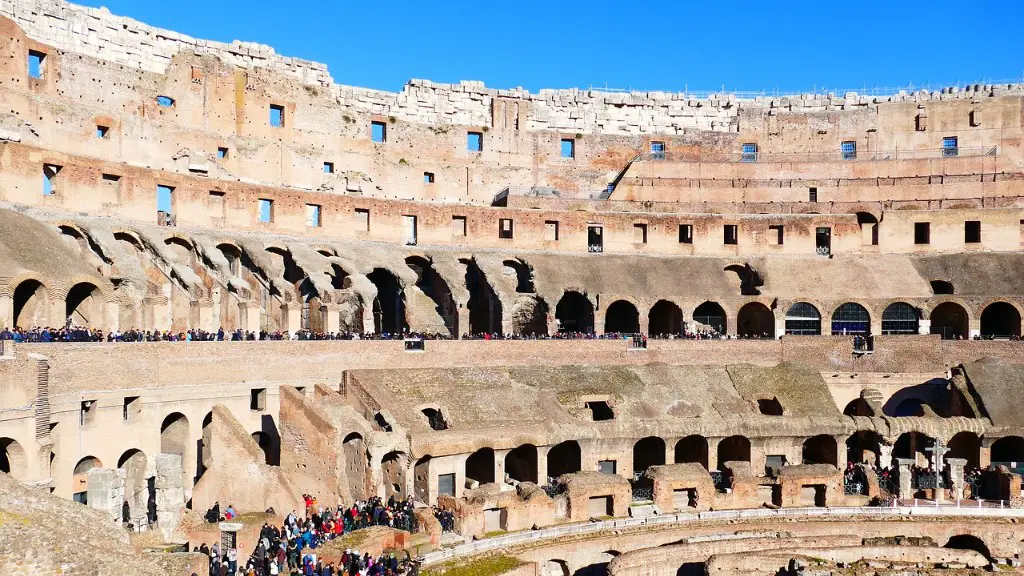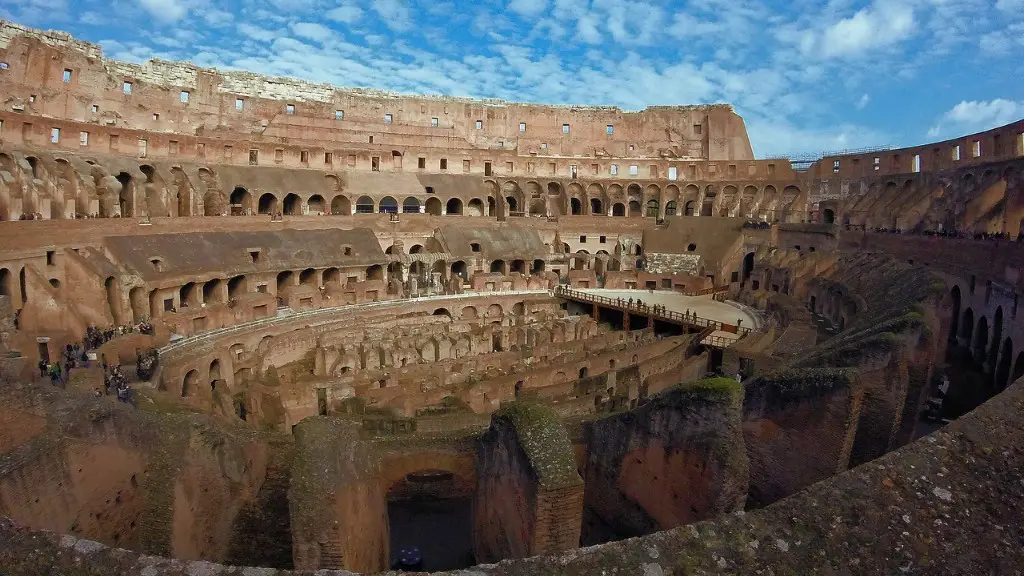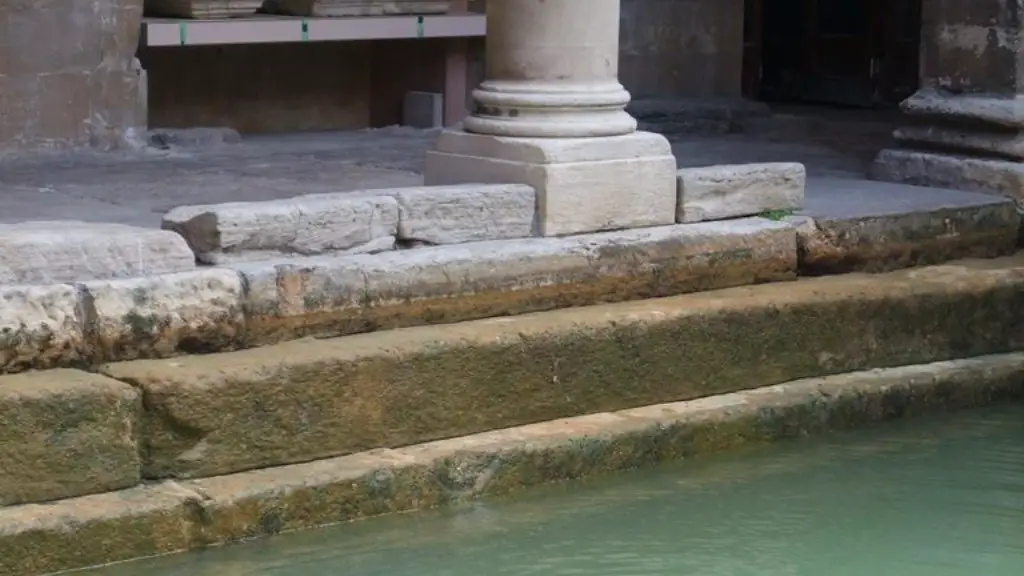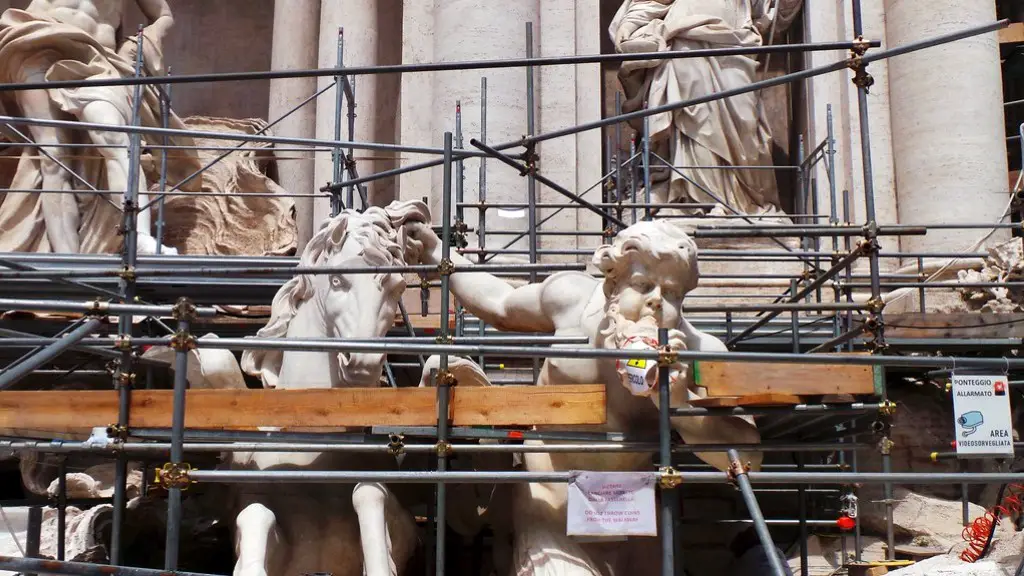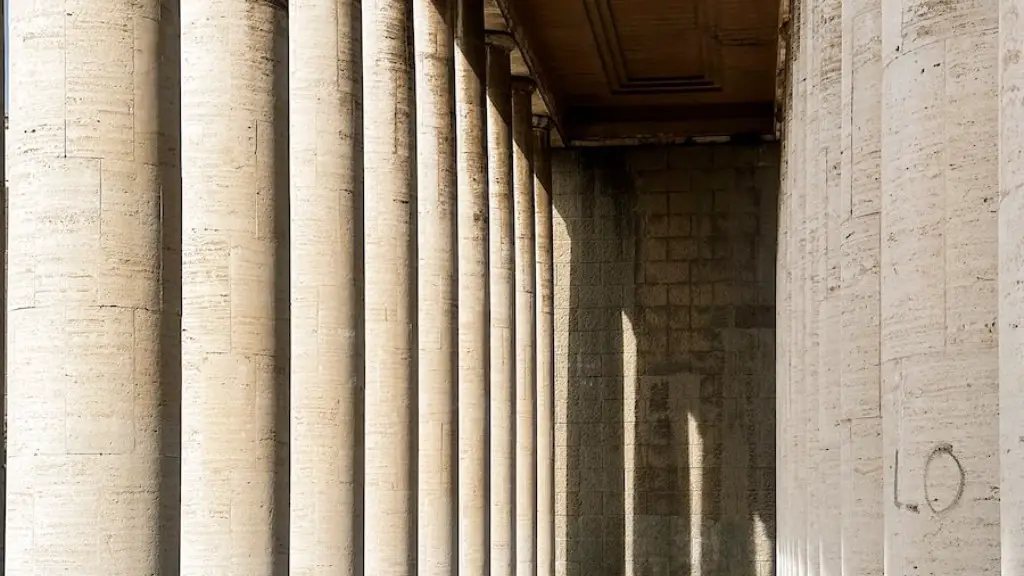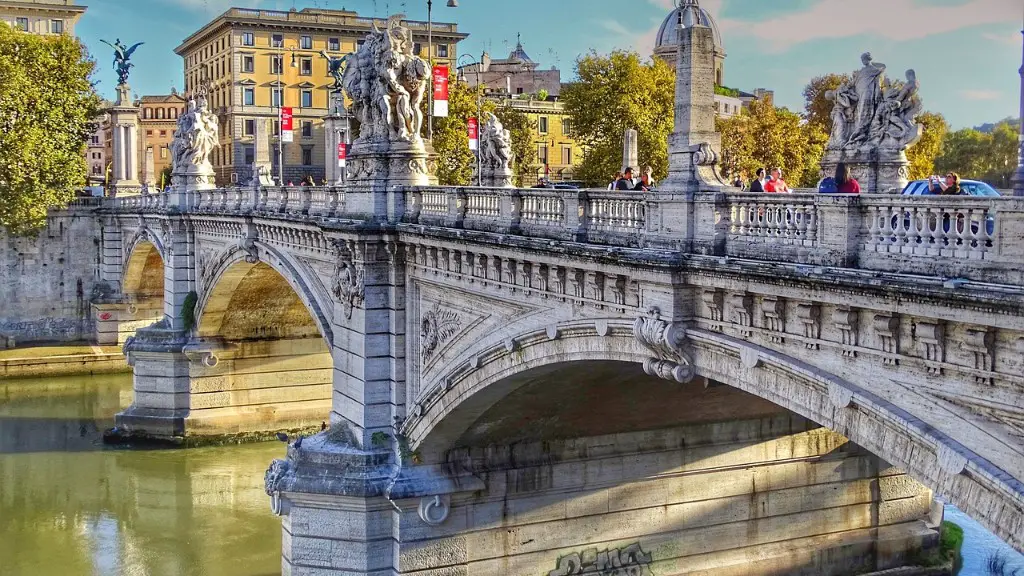From its very beginning, ancient Rome was different from other societies. It was situated on the Italian peninsula, which gave the settlers a distinct advantage over other early societies. The Italian peninsula is very mountainous and has few good harbors. This made it difficult for invaders to come in and conquer the land. The land also had a lot of mineral resources, which the early Romans used to their advantage. They built roads and walls to protect their borders and to keep out invaders. Rome also had a strong military and political structure. The early Romans were very unified and this helped them to conquer other societies. Rome was also different from other societies in its attitude towards religion. The early Romans were very tolerant of other religions and this helped to foster a sense of community.
There are many ways in which ancient Rome was different from other ancient societies. One key difference was its system of government, which was based on the concept of the rule of law. This meant that the government was bound by a set of laws that all citizens were expected to obey. Additionally, Rome had a strong military tradition and was one of the most powerful empires of its time. Its culture was also very different from other ancient societies, as it was based on the principles of stoicism and a belief in the importance of public service.
What made ancient Rome different?
The Ancient Romans were some of the most innovative people in terms of technology and science. They developed aqueducts and other ways to help water flow, which have ultimately shaped the way the world does certain things. They were also extremely adept engineers, understanding the laws of physics well enough to develop new and improved methods of doing things.
The Roman Empire was unique in many ways, but one of the most notable was its espousal of the principle of moderation in politics. This allowed for a uniquely dynamic and ever-changing political landscape, while still maintaining a sense of stability and endurance. This was a key factor in the success of the Roman Empire and helped to create a lasting legacy.
What made Rome different
Rome’s expansion in the first century BCE was due to a combination of military power, political flexibility, economic expansion, and good luck. This expansion changed the Mediterranean world and also changed Rome itself. Rome became more powerful and influential, and its impact was felt throughout the region.
The Roman Empire was one of the most impressive empires of its time. It achieved impressive technological and architectural feats, such as the empire-wide construction of aqueducts and roads, as well as more grandiose monuments and facilities. The Punic Wars with Carthage gave Rome supremacy in the Mediterranean.
What made ancient Rome more advanced than others?
The Romans were able to achieve high levels of technology due to their borrowing of technologies from the Greeks, Etruscans, Celts, and others. With limited sources of power, the Romans were still able to build impressive structures, some of which have survived to this day. This is a testament to the skill and engineering of the Roman people.
1. Rome was founded by two brothers nursed by a she-wolf.
2. The Ancient Romans worshipped a lot of different gods and goddesses.
3. Sometimes the Romans would flood the whole Colosseum or Circus Maximus for a boat battle.
4. Ancient Rome is underground!
5. The Roman empire once stretched from England all the way to North Africa.
6. Julius Caesar was assassinated by a group of senators afraid of his power.
7. The Roman army could march up to 40km a day!
8. Slaves in Ancient Rome could buy their freedom.
9. Wealthy Ancient Romans would often have their portraits painted on their tomb walls.
10. The Coliseum could hold up to 80,000 people!
What is unique about Rome?
Modern Rome is a bustling city with a rich history. It is home to 280 fountains and more than 900 churches. Nearly 700,000 euros worth of coins are tossed into Rome’s Trevi Fountain each year. The proceeds are donated to Caritas to help those in need. The Romans had built a road network of 53,000 miles by the early fourth century. Today, Rome is a vibrant city with a lot to offer tourists and residents alike.
Ancient Rome is remembered for its supreme power, advanced engineering, military successes, religious customs, entertainment and its brutality. It was a powerful civilisation that ruled for nearly a 1000 years, controlling a huge portion of Europe. Even today, the legacy of Ancient Rome can be seen in the architecture, art and culture of many countries around the world.
Why was Rome better as a empire
The Roman Empire’s shift to centralized imperial authority under Augustus’s reign dramatically decreased the power of representative democracy. For example, Augustus granted emperors the ability to introduce and veto laws, as well as command the army. This shift away from democracy to imperial rule greatly strengthened the emperor’s power and decreased the power of the people.
1. Rome was founded in 735 BC. This is earlier than what was previously thought- 753 BC. This was by Romulus, the founder of Rome.
2. Cats are free to roam in Rome. This is because they are considered good luck.
3. The Romans had big appetites and would often overeat.
4. Only men could wear togas. This was a form of traditionaldress.
5. Women wore stolas. These were long, flowing dresses.
6. The coins in the Trevi Fountain are there for good luck. People make a wish and throw a coin in.
7. Roman breathalyzers were used to test if someone was drunk. This was done by checking one’s breath.
8. The Colosseum was a place where people would go to watch shows. These shows often resulted in casualties.
What are 3 things Rome gave to the world?
The Roman Empire was responsible for a number of important inventions and discoveries that have shaped the modern world. Here are 10 of the most significant:
1. Cement – The Romans were the first to develop cement, which is used in the construction of buildings and other structures.
2. Sanitation – The Romans developed a comprehensive system of sanitation, including public baths and toilets, which helped to prevent the spread of disease.
3. Roads – The Romans built an extensive network of roads, which improved transportation and communication across the empire.
4. Social care and welfare – The Romans developed a number of systems to care for the sick, the poor, and other vulnerable members of society.
5. Julian calendar – The Julian calendar, which is still used in some parts of the world today, was invented by the Romans.
6. Elements of surgery – The Romans were responsible for developing a number of surgical techniques, including the use of anesthesia and sterilization.
7. Elements of the modern legal system – The Roman system of law forms the basis of many modern legal systems around the world.
8. Horse-drawn chariots – The Romans invented the horse-drawn chariot, which was used for transportation
Roman culture was based heavily on the Greeks, but as Rome grew they began to develop their own unique culture. This can be seen in their art, literature, and architectural history. The Romans were known for their love of entertainment, and they would often conduct sports and games to entertain their citizens. They began writing literature as early as the 3rd century BCE.
What are 10 facts about ancient Rome
The Roman civilization was one of the most influential in history. Here are 10 interesting facts about them:
1. The Romans would have baths together. This was not only for hygiene but also for socializing.
2. The Romans invented loads of things! Including concrete, the alphabet, and roads.
3. The Roman’s most popular form of entertainment were Gladiator fights.
4. The rich Romans had servants. This was very common and helped them maintain their lavish lifestyle.
5. We still use some Roman roads. They were so well made that many are still in use today.
6. They worshipped a lot of different Gods and Goddesses. This was a major part of their culture and beliefs.
7. Ancient Rome is underground. Due to all the buildings and structures that have been built over the years, much of Rome is actually subterranean.
8. The Roman Empire was huge! At its peak, it extended from Europe all the way to North Africa and the Middle East.
9. The Roman army was extremely disciplined and effective. They were a major force in the world for centuries.
10. The Roman civilization has had a tremendous impact on modern culture. We can
The Romans were a very powerful empire during their time. They had many skills that helped them to be successful. One of these skills was their ability to administrate. They were able to keep a well-organized empire and had a very efficient bureaucracy. This allowed them to keep their large empire under control. Another skill that contributed to their success was their engineering. They were able to build roads, aqueducts, and other infrastructure that was essential to their empire. Finally, the Romans had a very disciplined military. This helped them to protect their empire and to conquer new lands.
Why was Rome more advanced than medieval Europe?
The Roman empire was one of the most advanced civilizations of its time, with a more consistent system of roads, law, trade, and military than any other European medieval kingdom. However, after around 1200, the invention of new technologies, such as the treadmill crane and the counterweight trebuchet, pushed the European kingdoms ahead of Ancient Rome.
The Romans were a large part of Ancient society who contributed many things that we still use today. Some of their contributions include:
– Fast food: The Romans were the first to introduce street stalls and “food on the move” as we might think of it today.
– Advertising and Trademarks: The Romans were also the first to introduce adverts and trademarks as a way to promote products and businesses.
– Plumbing and Sanitation: The Romans were responsible for many of the early advancements in plumbing and sanitation, which are vital for modern societies.
– Towns: The Romans were the first to build towns and cities as we know them today, with streets, public buildings, and homes.
– Architecture: Roman architecture is some of the most iconic and well-known in the world, with influences still seen in many modern buildings.
– Roads: The Romans built an extensive network of roads that were used for trade, transportation, and military purposes. This network helped to connect the vast Roman Empire.
– Our Calendar: The Roman calendar was the first to introduce the concept of months, and it is the basis for the modern calendar that we use today.
What is Rome best known for
Rome is most famous for its spectacular historical landmarks, which include the Colosseum, Trevi Fountain, The Pantheon, Roman Forum, Piazza Navona, Spanish Steps, Vatican Museums, and St. Peter’s Basilica. These landmarks are among the most popular tourist attractions in the world and are indicative of Rome’s rich history and culture.
The Roman Empire was a vast and powerful empire that had a long-lasting influence on many different aspects of culture. From state institutions and law to cultural values and religious beliefs, the Roman Empire had a profound impact on the development of Western civilization. The empire also made significant contributions to technology and engineering, and its Latin language became the lingua franca of the West.
Conclusion
There are many ways in which ancient Rome was different from other ancient societies. One way was in its form of government. Rome had a republic government, which was a type of government that was different from the monarchy governments of other ancient societies. Another way in which Rome was different was in its military. Rome had a very strong military that was able to conquer other societies. Additionally, Rome was different in its culture and lifestyle. Roman culture was very luxurious and Rome had a lot of great architectural feats.
There are many ways in which ancient Rome was different from other ancient societies. Perhaps the most obvious difference is that Rome was a republic, while most other societies were monarchies. Rome also had a strong military tradition, and was one of the most powerful empires of its time. Finally, Rome was known for its art and architecture, which were quite different from those of other cultures.
